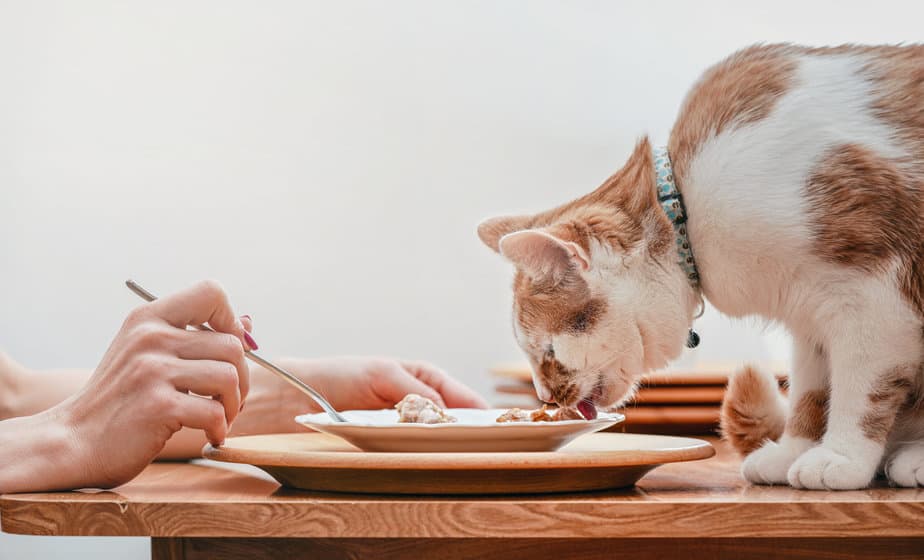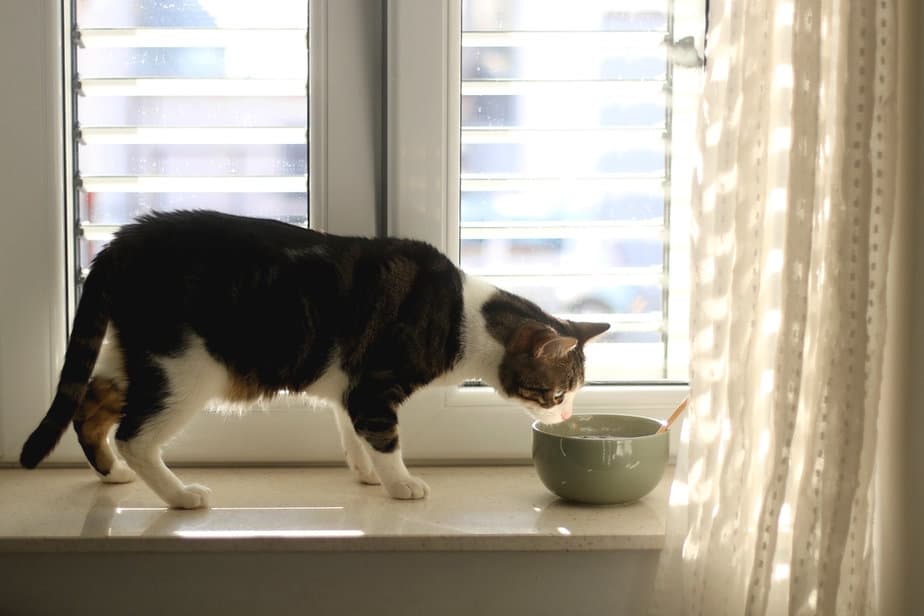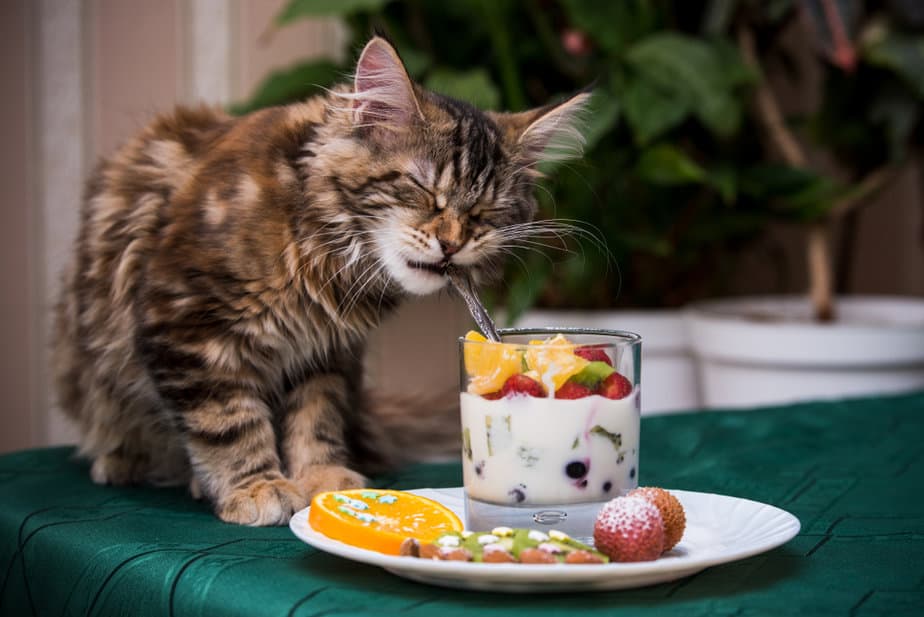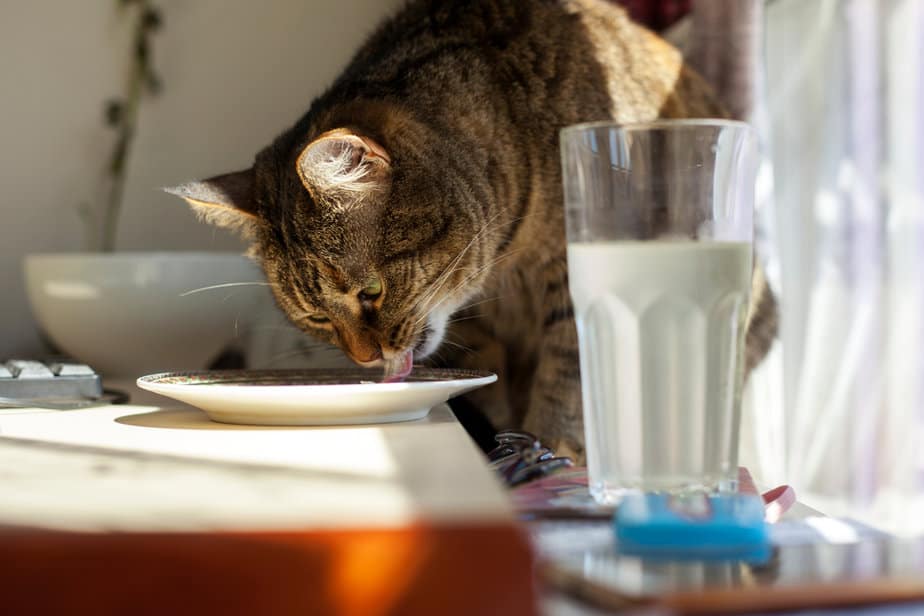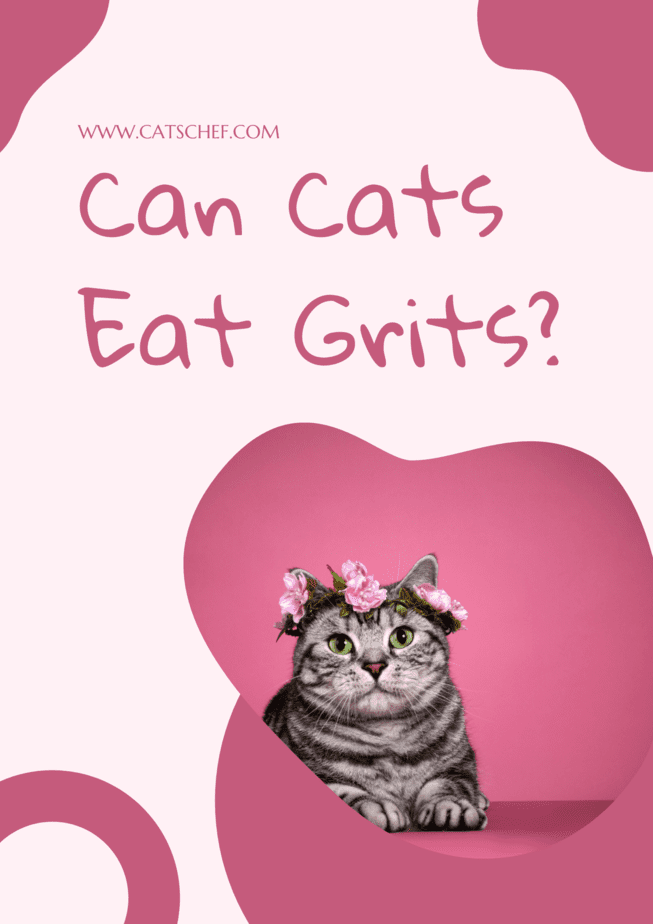📖 Table of Content:
We know porridge is considered to be one of the healthiest breakfasts for humans. I don’t think cats second-guess their choice of food because they can be so greedy. Can cats eat grits as it’s healthy for us?
If you want to change your pet’s diet a bit, you might think grits are a perfect way to do so. They’re nutritional, tasty, and keep you full for some time.
But you must know that the same rules don’t apply to felines. Even though we consider them to be our family members, they’re totally different than us.
It’s obvious from the physical appearance, but we also differ a lot in terms of diet. Felines are obligate carnivores, which means they grow and live the best by consuming meat.
On the other hand, humans are omnivorous, so we receive much more benefit from plant-based foods than our furry friends.
However, you’re not completely against your pet dipping her whiskers into some of your food. Who would be when she pleads with those big, half-moon eyes?
One of the downsides to having a cat is that you can’t resist their meows. It’s a bad thing, though, because our food might be potentially harmful to their health.
Can cats eat grits?
We know it’s not their natural choice of food, but can cats eat grits safely?
Fortunately, this porridge isn’t toxic to felines. Now, this has to mean that it’s safe for them to eat, right?
Given that grits are made from boiled cornmeal, we can conclude that they’re okay for your pet. However, this doesn’t mean she should be offered this porridge regularly.
It’s super healthy for humans, but our four-legged companions could skip this breakfast. It doesn’t hold as many nutritional benefits to them and, in some cases, it can actually be harmful.
What are grits made of?
Let’s take a deeper look into this breakfast. When you want to introduce certain foods to your pet, you have to know their ingredients, right? The appearance may not look hazardous, but sometimes you can be baffled by what you encounter in a meal.
Boiled cornmeal doesn’t sound bad at all, right? Well, you should always ask yourself: How can it benefit my cat?
Felines have a sensitive digestive system, so it’s best to be vigilant regarding their menu options. Don’t let their greediness fool you into thinking they’re able to devour anything they come across!
While corn is so-to-say okay for cats to eat, the milk found in grits can be a problem. Not to mention the sweeteners such as sugar, syrup, and others.
Can cats eat grits because of milk?
If you took a minute to stop and think about it, congrats. You’re a responsible cat parent who always has a tiny bit of suspicion about new foods, as you should!
“Cats love milk” – now here’s a myth that’s been stretched out for centuries. Fortunately, it’s been debunked for quite some time now, it’s just that some pet parents aren’t aware of it yet.
Felines become lactose intolerant as they grow older. In the process, they lose the enzymes needed for digesting milk. Consequently, this leaves them unable to break down sugar (lactose) found in milk.
Unfortunately, it’s not just milk that’s their nemesis, it’s all dairy products, even margarine and butter.
If your pet stumbled upon your leftover grits, it’s likely you’ll find a trail of milk leading from the table. She’s attracted to the fat content found in it and probably won’t hesitate to dip her paws in.
However, it’s possible you’ll find her running to the litterbox after this. Because she can’t digest it properly, she’s highly likely to suffer from an upset stomach.
Get ready for what you’re about to hear because you won’t like this. Dairy can cause diarrhea, bloating, and gassiness in cats. I know, right?
Therefore, make sure she stays away from dairy products if you don’t want this to happen. Now that you know better, a moment of kitty pleasure really isn’t worth her discomfort afterward.
So, while cats can eat grits, it’s possible it won’t be without any consequences.
What about sweeteners?
Just like cereal, grits typically contain a high amount of sugar. While this is what makes them so tasty to us, it can be troublesome for cats.
You probably think how can such sweet flavor be detrimental? Well, the answer is pretty simple. In the same way that it’s hazardous to us, it’s just intensified in felines.
Sugar is a carbohydrate, which cats don’t need in their diet. Therefore, you can only assume that its ingestion doesn’t bring them any good.
For instance, they can gain weight if they consume it on a regular basis. While a chonky may look cute, we don’t really want that happening.
Moreover, it can be the reason for dental problems such as tooth decay. Your pet needs her sharp razors to eat and stay alive! Not to mention how expensive animal dentists are…
In severe cases (that are considered neglect and animal abuse), cat owners let their cats feast on sweet foods daily. This is highly dangerous because it leads to the development of diseases such as diabetes. This will ruin your cat’s quality of life and add to those vet bills.
If not sugar, grits instead contain honey, which isn’t as harmful to pets, but it also isn’t the healthiest choice.
Some cats are more sensitive than others. Just like humans, their bodies differ and you can’t be one hundred percent sure about the aftermath.
If you’re still not sure can cats eat grits, talk to your vet and they will explain the dangers behind sweeteners.
Bottom line
I hope I answered your question regarding this porridge. In conclusion, cats can eat grits, but occasionally and minus the added sweetener and dairy.
Grits shouldn’t be a regular thing as it poses certain health risks to felines. Because of the milk and the sugar, it’s best if they stay on your menu alone.
It’s not the end of the world if your kitto stole a lick or two, but don’t let it become a habit. This boiled cornmeal may be a healthy choice for you, but it doesn’t mean it’s good for your furchild.
